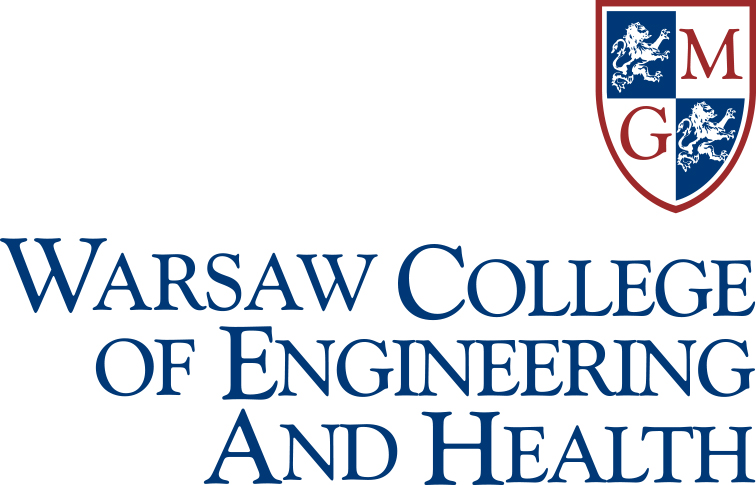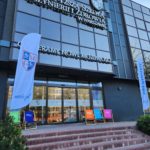Incoming
2024-02-22 2024-04-15 10:50Incoming
Incoming
Warsaw College of Engineering and Health
The Warsaw College of Engineering and Health (Wyższa Szkoła Inżynierii i Zdrowia w Warszawie, WSIiZ) is a private higher education institution, existing since 2003. We run undergraduate (bachelor and engineer), master and postgraduate studies. Our mission is modern concept of education and vocational training of highly qualified staff that better matches the needs and demands of the rapidly developing economy and the labour market with a view to high rate of employability of our graduates.
In an unending drive towards continuous development we adapt to the economic, technological and scientific conditions to better cooperate with business-environment institutions. We allow for enough flexibility in our study programmes to be always on par with the what is new in the world of technology and innovation and to be able to bring it in to our classrooms.
Our exquisitely equipped workrooms and laboratories are backed by the best brands in the business. We always make sure that our students not only work with the best professionals in the business, but also that they have top notch equipment at hand that corresponds to that later used on the job.
The Warsaw College of Engineering and Health is an educational institution with practical profile which means that our focus is on practical classes, laboratories and workshops to prepare our students to real-life conditions at their future workplace. To this end we’ve already established close cooperation with business environment institutions and we’re still working on new cooperation agreements.
Below please find the educational offer of the Warsaw College of Engineering and Health
Master's programmes:
- Cosmetology
- Cosmetic technology
- Dietetics
Engineer’s programmes:
- Cosmetic Chemistry
- Food Chemistry
- General Chemistry
- Engineer in health protection and promotion
Bachelor’s programmes:
- Cosmetology
- Dietetics
- Public health
- Nursing
Campus 1 - Campus 2
The Warsaw College of Engineering and Health is located in 2 Campuses not far away from each other:
- Campus 1 – ul. Bitwy Warszawskiej 1920r. nr 18 r.
- Campus 2 – ul. Aleje Jerozolimskie 195a
Apart from the workrooms and labs furnished with state-of-the-art equipment as well as comfortable auditory classrooms the students also have access to chillout zones and break rooms where you can charge your mobile devices, learn, prepare and eat a meal or just relax in between classes.
Gallery - Campus 1
Gallery - Campus 2

The Warsaw College of Engineering and Health
Contact info
Erasmus code | PL WARSZAW59 |
Main address | Ul. Bitwy Warszawskiej 1920 r. nr 18 02-366 Warszawa Poland |
Institutional Erasmus Coordinator / Contact person | Katarzyna Mikulska Phone: +48 22 562 35 03 email: erasmus@wsiiz.pl |
Student
Choosing the Warsaw College of Engineering and Health as your destination for a mobility period means choosing an exceptional experience of individualised classes in a friendly and welcoming atmosphere, participation in workshop and laboratories with professionals from the industry and a great life experience of living a vibrant and beautiful city of Warsaw. If you want to have a once in a lifetime experience, the Warsaw College of Engineering and Health is the place for you!
Academic Calendar
Application procedure & deadlines
The academic year is divided into two semesters the winter semester and the spring semester.
THE WINTER SEMESTER:
1 October 2025 – 28 February 2026
Christmas holiday break: 22 December 2025 – 1 January 2026
Public Holidays: 1 November 2025, 11 November 2025, 6 January 2026
Winter break: 19 January 2026– 30 January 2026
THE SPRING SEMESTER:
2 March 2026 – 12 June 2026
Easter break: 2 April 2026 – 7 April 2026
Public Holidays: 1-3 May 2026, 4 June 2026
Summer break: 30 June 2026 – 30 September 2026
The Warsaw College of Engineering and Health accepts applications for both the winter and spring of first and second cycle studies
The applications for the winter semester are accepted until April 15th of the academic year of application
The applications for the spring semester are accepted until November 15th of the academic year of application
Students, who want to apply for mobility at the Warsaw College of Engineering and Health, are asked to apply via their higher education institution. We accept students from institutions that have signed an Inter-Institutional Agreement with the Warsaw College of Engineering and Health and have a valid European Charter for Higher Education. If you want to apply and your institution does not have an IIA signed with us you can ask your Erasmus+ coordinator to conclude such an agreement.
After your institution sends us an official nomination, we’ll ask you to fill in an online application form. Then your nomination we’ll be verified, we’ll also ask you to take part in a brief online interview. Afterwards when the application is accepted we’ll send you your acceptance letter and start working on your study programme. The courses available in English are indicated below – Courses.
Should you have any additional questions regarding the procedure, please contact us via the online form on the website.
On the first day of your mobility you’re attending the orientation day, during which we inform you again in person about all important aspects of studding at the Warsaw College of Engineering and Health. It is the time to ask questions! You are also taken on the tour of the premises to get to know it and find the most important places for the students: kitchen, coffee machines, chillout zones, etc. moreover, Erasmus students will be also invited to take part in the life of our academic community. You will be invited to take part in cultural and educational events, workshops and other social occasions planned for our students.
Application Form
When your nomination is accepted we’ll ask you to fill in the application form under the link: https://forms.gle/f12WK5xn2PJSPb9L8
Please be informed that applications that were filled in but are not supported by a valid nomination will be rejected.
Grades
Description of the institutional grading system
The Warsaw College of Engineering and Health implements and uses the ECTS system as the main device to facilitate international exchange. The courses are graded using a local system which is as follows:
Pass/fail system | Local grade | Definition |
Pass | 5 | Excellent – strong performance, only minor shortcomings |
4.5 | Very good – above average performance, good knowledge and skills, some smaller mistakes | |
4 | Good – generally strong performance, noticeable mistakes | |
3.5 | Satisfactory – average performance, knowledge and skills with major shortcomings | |
3 | Sufficient – performance meeting the minimum criteria | |
Fail | 2 | Fail – knowledge and skill do not meet minimum criteria/below minimum criteria |
The ECTS grading scale is as follows:
ECTS Grade | Definition |
A | EXCELLENT – outstanding performance with only minor errors |
B | VERY GOOD – above the average standard but with some errors |
C | GOOD – generally sound work with a number of notable errors |
D | SATISFACTORY – fair but with significant shortcomings |
E | SUFFICIENT – performance meets the minimum criteria |
FX | FAIL – some more work required before the credit can be awarded |
F | FAIL – considerable further work is required |
The local grade is translated into the ECTS grading system according to the following:
LOCAL GRADE | ECTS GRADE | DEFINITION |
5 | A | EXCELLENT |
4.5 | B | VERY GOOD |
4 | C | GOOD |
3.5 | D | SATISFACTORY |
3 | E | SUFFICIENT |
2 | F | FAIL |
ZAL | PASSED | PASSED |
NZAL | NOT PASSED | NOT PASSED |
Courses
Please be informed that we do not hold regular programmes in English. But due to significant interest of students in our programmes we provide English language classes and adjusted for English-speaking students. A selection of the classes from respective programmes is provided below for respective years. The lectures and academic classes are organized individually in English for Erasmus+ mobility students. Practical and workshop classes are held in a group of Polish students and are adjusted for English-speaking students.
Study Programmes:
Courses in English:
Language requirements
The minimum English language proficiency level required to study at our institution is B1 (students studying in English) and/or B1 language proficiency level of Polish (students studying in Polish) according to the Common European Framework of Reference for Languages.
We do not require any official language certificates but trust our partner universities to check the level of language competence of their nominated students.
If you’re not sure what level you are, you can test your language skills using, for example, Erasmus+ Online Linguistic Support (OLS) platform, which offers 18 languages for tests and courses.
More information at: https://erasmus-plus.ec.europa.eu/resources-and-tools/online-language-support
Legalization of Stay
EU/EEA citizens
Students who are citizens of the European Union or European Economic Area do not need a visa when entering Poland. However, for stays longer than 3 months, students should obtain a temporary residence permit at the Mazovian Voivodeship Office.
Mazovian Voivodeship Office – Department for Foreigners
Address: ul. Marszałkowska 3/5, 00-624 Warszawa
Phone: +48 22 695 67 73
E-mail: wsc@mazowieckie.pl
Office hours:
10 am – 5:30 pm (Monday), 8 am – 3 pm (Tuesday – Friday)
Further information (in Polish only):
https://migrant.wsc.mazowieckie.pl/procedury/obywatele-ue
non-EU/EEA-citizens
All non-EU/EEA citizens are required to obtain a visa from the Polish Consulate or Embassy in their country of residence before coming to Poland. A short-term visa entitles students to stay in Poland for up to 3 months; a long-term visa – up to 1 year.
Useful links:
EU Immigration Portal: https://immigration-portal.ec.europa.eu/index_en
Office for Foreigners: https://www.gov.pl/web/udsc-en
Insurance
All international students coming to the Warsaw College of Engineering and Health ahve to have a health and accident insurance valid throughout the whole period of their stay in Poland. As they will be taking part in laboratory and workshop classes they also have to have a liability insurance. It is essential to have medical insurance in order to avoid expensive medical fees, in the event of a medical emergency or other health related matters.
Please, check carefully the expiry date, scope and all provisions of the insurance policy you are going to buy. If you are planning to travel to other countries during your stay in Poland, you must remember that it should be included in your insurance coverage.
Health insurance policy options include:
- The European Health Insurance Card
- A private health insurance policy with an insurance company of the student’s choice
- Medical Insurance obtained with the International Student Identity Card (ISIC)
- Insurance with Narodowy Fundusz Zdrowia (Polish National Healthcare System), commencing at the start of the academic year
Students from the European Union or the European Economic Area are expected to apply for the European Health Insurance Card (EHIC) in their home country.
It is in your best interest and you should comply with the above-mentioned requirements.
EU/EEA-citizens
The European Health Insurance Card (EHIC) should be issued by a competent domestic authority before your arrival to Poland and should cover the whole period of your stay in Poland. The EHIC entitles you to free-of-charge emergency health care in Poland on the same principles as the Polish citizens. The free-of-charge services are provided by clinics/hospitals/doctors that have a contract with the Polish National Health Fund (in short: NFZ), which is the institution responsible for health care in Poland.
To get treatment by a general practitioner (examination and consultation) you should show your European Health Insurance Card (EHIC) or a replacement certificate together with a valid identity document and student ID.
Detailed information concerning health care in Poland can be found at: http://www.nfz.gov.pl/
non-EU citizens
Students from outside the European Union and EEA countries are obliged to obtain the health insurance either at the Polish National Health Fund (NFZ) after coming to Poland or at any other private insurance company in their home country or in Poland. The health insurance must be valid throughout the whole period of your stay in Poland.
Depending on the terms and conditions of your insurance, you can receive health care free of charge, or you will be charged and get the costs of the treatment reimbursed after coming back home.
Accident insurance
Accident insurance is a policy that pays benefits to the beneficiary in case of fatal and non-fatal accidents. Accident insurance covers loss of life resulting from a covered accident and can provide coverage for some conditions (e.g. loss of limbs, loss of eyesight etc.) resulting from an accident. The conditions which may be covered depend on the policy.
Emergency Number
112 European Emergency Number – Free-of-charge
112 is a universal European emergency phone number. It can be dialled directly from a landline (including pay-phones) and mobile phones. No country or city code is needed.
Since all EU Member States are responsible for provision of their own emergency services, the caller may be transferred to a local operator upon placing a call with 112.
Accommodation
The Warsaw College of Engineering and Health does not have a dormitory. One of the generally available options of accommodation is the privately owned dormitory: Student Depot (https://studentdepot.pl/en/). You can also try to search for accommodation via the popular websites providing offers with flats for rent: Otodom, Gratka, OLX.
Another option is Pepe Housing parter of WSIiZ providing accommodation for students in Poland.
Pepe Housing was created in response to a high demand for quality student accommodation in Poland. The company’s team has lived in many countries and has experienced all possible problems related to student house hunting. As a result, they understand the needs and qualities students are looking for.
As an Erasmus Student Network official partner for Erasmus+ student accommodation in Poland, Pepe Housing is a partner in the process of searching for quality accommodation in convenient locations in Warsaw. Pepe Housing carefully chooses the landlords and makes sure that all the flats and rooms are equipped with basic furniture and other necessary items. You can rent all rooms and flats offered by Pepe Housing online, and the company ensures that booking is fast and safe. Pepe Housing team is happy to answer all possible questions and help you find the appropriate accommodation in Poland.
Check the rooms and flats with easy access by public transport to Warsaw College of Engineering and Health: https://pepehousing.com/warszawa/search
Warsaw College of Engineering and health students should use the “WSIiZ” promo code, which entitles them to 10% discount on the booking fee. The code must be used during the booking process. How to do it: instruction
Should you have problems with finding accommodation please contact us via the online contact form.
Public transport
The best way to get around Warsaw is on foot or using public transport – a fast and inexpensive way to travel. You can choose among buses, trams and the metro.
Information about public transport timetables:
tel.: +48 19 115 (from mobile phones +48 22 19 115)
Maps and diagrams of the public transport system: https://www.wtp.waw.pl/en/maps-schemas/
Information about travelling by public transport is also available at: www.jakdojade.pl
Tickets:
The Warsaw metropolitan area is divided into urban zone “1” (within the city boundary) and suburban area “2”.
Ticket prices – zone 1:
- 75 minute ticket – 4,40 PLN, discount – 2,20 PLN
- 75-minute group ticket (entitles a group of up to 10 people to an unlimited number of rides for up to 75 minutes from the moment of validating the ticket): 22 PLN
- One-day ticket (valid 24h from the moment of validating the ticket): standard – 15,00 PLN, discount – 7,50 PLN
- Three-day ticket: standard – 36,00 PLN, discount – 18,00 PLN
Ticket prices – zone 1 and 2:
- 20 minute ticket – 3,40 PLN, discount – 1,70 PLN
- 90 minute ticket – 7,00 PLN, discount – 3,50 PLN
- One-day ticket (valid 24h from the moment of validating the ticket): standard – 26,00 PLN, discount – 13,00 PLN
- Weekend ticket (entitles to unlimited number of rides from 7.00 p.m. on Friday to 8.00 a.m. on Monday): standard – 24,00 PLN, discount – 12,00 PLN
- Group weekend ticket (entitles a group of up to 5 people to unlimited travel from 7.00 p.m. on Friday to 8:00 a.m. on Monday): 40,00 PLN
- Three-day ticket: standard – 57,00 PLN, discount – 28,50 PLN
Discount for students is available for international students not older than 26 years holding the ISIC (International Student Identity Card) valid for a given calendar year. The virtual ISIC card is not valid.
Long term tickets:
- 30-day tickets
- 90-day tickets
More information about long-term tickets at: https://www.wtp.waw.pl/en/ticket-tariff/long-term-tickets/
Tickets must be validated immediately after boarding a bus or tram, or at the gates leading to metro platforms.
Validated tickets entitle the holder to an unlimited number of journeys within the time indicated on the ticket from the moment of validation or until arrival by public transport to the last stop or station on the route.
You can buy public transport tickets at newsstands, Passenger Service Centers and ticket machines, which you will find on most buses, in the new trams, at underground stations and near stops. In the ticket machines, which support five languages (Polish, English, German, Russian and Ukrainian), you can pay for your ticket with coins or a card. Tickets can also be purchased using a mobile phone.
Detailed information at: www.wtp.waw.pl or jakdojade.pl app.
*Good to know
Bus no. 180 – a regular bus line that takes you to most of the best tourist destinations in Warsaw along the Royal Route to Wilanów. The whole route takes about 60-70 minutes.
At night it is worth taking the metro, which runs until midnight on weekdays and to 3.00 am at weekends. Or take night buses marked with the letter “N”, which run from 11.15 pm to 04.45 pm.
Luggage and animals can be taken on public transport free of charge.
If you use public transportation without a valid ticket, you risk a 266 PLN fine. If you are handed a fine, you can pay it on the spot (always get proof of payment from the ticket controller). Fines can be reduced by 30%, if they are paid no later than seven days after being issued.
STA
Academic Calendar
The academic year is divided into two semesters the winter semester and the spring semester.
THE WINTER SEMESTER:
1 October 2025 – 28 February 2026
Christmas holiday break: 22 December 2025 – 1 January 2026
Public Holidays: 1 November 2025, 11 November 2025, 6 January 2026
Winter break: 19 January 2026– 30 January 2026
THE SPRING SEMESTER:
2 March 2026 – 12 June 2026
Easter break: 2 April 2026 – 7 April 2026
Public Holidays: 1-3 May 2026, 4 June 2026
Summer break: 30 June 2026 – 30 September 2026
Application procedure & deadlines
The Warsaw College of Engineering and Health accepts applications from academic staff for teaching or training in an ongoing manner, based on nominations sent from partner institutions. The nomination should include some basic data about the nominated academic staff member: first and last name, contact email, type of mobility: teaching or training, suggested dates.
We accept academic staff members from institutions that have signed an Inter-Institutional Agreement with the Warsaw College of Engineering and Health and have a valid European Charter for Higher Education. If you want to apply and your institution does not have an IIA signed with us you can ask your Erasmus+ coordinator to conclude such an agreement.
After your institution sends us an official nomination, we’ll ask you to fill in an online application form. Afterwards when we have all the information to accept the application we’ll issue you an invitation letter and you can start working on your mobility agreement (STA or STT).
Should you have any additional questions regarding the procedure, please contact us via the online form on the website.
Application Form
When your nomination is accepted we’ll ask you to fill in the application form under the link: https://forms.gle/8uXPmPtwVNPQMdFt5
Please be informed that applications that were filled in but are not supported by a valid nomination will be rejected.
Language requirements
The minimum English language proficiency level required for a teaching or training mobility at our institution is B2 (students studying in English) and/or B2 language proficiency level of Polish (students studying in Polish) according to the Common European Framework of Reference for Languages.
Legalization of Stay
EU/EEA citizens
Academic staff members who are citizens of the European Union or European Economic Area do not need a visa when entering Poland.
Further information (in Polish only):
https://migrant.wsc.mazowieckie.pl/procedury/obywatele-ue
non-EU/EEA-citizens
All non-EU/EEA citizens are required to obtain a visa from the Polish Consulate or Embassy in their country of residence before coming to Poland. A short-term visa entitles students to stay in Poland for up to 3 months; a long-term visa – up to 1 year.
Useful links:
EU Immigration Portal: https://immigration-portal.ec.europa.eu/index_en
Office for Foreigners: https://www.gov.pl/web/udsc-en
Insurance
All international academic staff members coming to the Warsaw College of Engineering and Health should have a health and accident insurance valid throughout the whole period of their stay in Poland. Please, check carefully the expiry date, scope and all provisions of the insurance policy you are going to buy.
Academic staff members from the European Union or the European Economic Area are expected to apply for the European Health Insurance Card (EHIC) in their home country.
It is in your best interest and you should comply with the above-mentioned requirements.
EU/EEA-citizens
The European Health Insurance Card (EHIC) should be issued by a competent domestic authority before your arrival to Poland and should cover the whole period of your stay in Poland. The EHIC entitles you to free-of-charge emergency health care in Poland on the same principles as the Polish citizens. The free-of-charge services are provided by clinics/hospitals/doctors that have a contract with the Polish National Health Fund (in short: NFZ), which is the institution responsible for health care in Poland.
To get treatment by a general practitioner (examination and consultation) you should show your European Health Insurance Card (EHIC) or a replacement certificate together with a valid identity document and student ID.
Detailed information concerning health care in Poland can be found at: http://www.nfz.gov.pl/
non-EU citizens
Academic staff members from outside the European Union and EEA countries are obliged to obtain the health insurance either at the Polish National Health Fund (NFZ) after coming to Poland or at any other private insurance company in their home country or in Poland. The health insurance must be valid throughout the whole period of your stay in Poland.
Depending on the terms and conditions of your insurance, you can receive health care free of charge, or you will be charged and get the costs of the treatment reimbursed after coming back home.
Accident insurance
Accident insurance is a policy that pays benefits to the beneficiary in case of fatal and non-fatal accidents. Accident insurance covers loss of life resulting from a covered accident and can provide coverage for some conditions (e.g. loss of limbs, loss of eyesight etc.) resulting from an accident. The conditions which may be covered depend on the policy.
Emergency Number
112 European Emergency Number – Free-of-charge
112 is a universal European emergency phone number. It can be dialled directly from a landline (including pay-phones) and mobile phones. No country or city code is needed.
Since all EU Member States are responsible for provision of their own emergency services, the caller may be transferred to a local operator upon placing a call with 112.
Public transport
The best way to get around Warsaw is on foot or using public transport – a fast and inexpensive way to travel. You can choose among buses, trams and the metro.
Information about public transport timetables:
tel.: +48 19 115 (from mobile phones +48 22 19 115)
Maps and diagrams of the public transport system: https://www.wtp.waw.pl/en/maps-schemas/
Information about travelling by public transport is also available at: www.jakdojade.pl
Tickets:
The Warsaw metropolitan area is divided into urban zone “1” (within the city boundary) and suburban area “2”.
Ticket prices – zone 1:
- 75 minute ticket – 4,40 PLN, discount – 2,20 PLN
- 75-minute group ticket (entitles a group of up to 10 people to an unlimited number of rides for up to 75 minutes from the moment of validating the ticket): 22 PLN
- One-day ticket (valid 24h from the moment of validating the ticket): standard – 15,00 PLN, discount – 7,50 PLN
- Three-day ticket: standard – 36,00 PLN, discount – 18,00 PLN
Ticket prices – zone 1 and 2:
- 20 minute ticket – 3,40 PLN, discount – 1,70 PLN
- 90 minute ticket – 7,00 PLN, discount – 3,50 PLN
- One-day ticket (valid 24h from the moment of validating the ticket): standard – 26,00 PLN, discount – 13,00 PLN
- Weekend ticket (entitles to unlimited number of rides from 7.00 p.m. on Friday to 8.00 a.m. on Monday): standard – 24,00 PLN, discount – 12,00 PLN
- Group weekend ticket (entitles a group of up to 5 people to unlimited travel from 7.00 p.m. on Friday to 8:00 a.m. on Monday): 40,00 PLN
- Three-day ticket: standard – 57,00 PLN, discount – 28,50 PLN
Discount for students is available for international students not older than 26 years holding the ISIC (International Student Identity Card) valid for a given calendar year. The virtual ISIC card is not valid.
Long term tickets:
- 30-day tickets
- 90-day tickets
More information about long-term tickets at: https://www.wtp.waw.pl/en/ticket-tariff/long-term-tickets/
Tickets must be validated immediately after boarding a bus or tram, or at the gates leading to metro platforms.
Validated tickets entitle the holder to an unlimited number of journeys within the time indicated on the ticket from the moment of validation or until arrival by public transport to the last stop or station on the route.
You can buy public transport tickets at newsstands, Passenger Service Centers and ticket machines, which you will find on most buses, in the new trams, at underground stations and near stops. In the ticket machines, which support five languages (Polish, English, German, Russian and Ukrainian), you can pay for your ticket with coins or a card. Tickets can also be purchased using a mobile phone.
Detailed information at: www.wtp.waw.pl or jakdojade.pl app.
*Good to know
Bus no. 180 – a regular bus line that takes you to most of the best tourist destinations in Warsaw along the Royal Route to Wilanów. The whole route takes about 60-70 minutes.
At night it is worth taking the metro, which runs until midnight on weekdays and to 3.00 am at weekends. Or take night buses marked with the letter “N”, which run from 11.15 pm to 04.45 pm.
Luggage and animals can be taken on public transport free of charge.
If you use public transportation without a valid ticket, you risk a 266 PLN fine. If you are handed a fine, you can pay it on the spot (always get proof of payment from the ticket controller). Fines can be reduced by 30%, if they are paid no later than seven days after being issued.
STT
Academic Calendar
The academic year is divided into two semesters the winter semester and the spring semester.
THE WINTER SEMESTER:
1 October 2025 – 28 February 2026
Christmas holiday break: 22 December 2025 – 1 January 2026
Public Holidays: 1 November 2025, 11 November 2025, 6 January 2026
Winter break: 19 January 2026– 30 January 2026
THE SPRING SEMESTER:
2 March 2026 – 12 June 2026
Easter break: 2 April 2026 – 7 April 2026
Public Holidays: 1-3 May 2026, 4 June 2026
Summer break: 30 June 2026 – 30 September 2026
Application procedure & deadlines
The Warsaw College of Engineering and Health accepts applications from administrative staff for training in an ongoing manner, based on nominations sent from partner institutions. The nomination should include some basic data about the nominated administrative staff member: first and last name, contact email, type of mobility: teaching or training, suggested dates.
We accept administrative staff members from institutions that have a valid European Charter for Higher Education.
After your institution sends us an official nomination, we’ll ask you to fill in an online application form. Afterwards when we have all the information to accept the application we’ll issue you an invitation letter and you can start working on your mobility agreement (STT).
Should you have any additional questions regarding the procedure, please contact us via the online form on the website.
Application Form
When your nomination is accepted we’ll ask you to fill in the application form under the link: https://forms.gle/8uXPmPtwVNPQMdFt5
Please be informed that applications that were filled in but are not supported by a valid nomination will be rejected.
Language requirements
The minimum English language proficiency level required for a training mobility at our institution is B2 (students studying in English) and/or B2 language proficiency level of Polish (students studying in Polish) according to the Common European Framework of Reference for Languages.
Legalization of Stay
EU/EEA citizens
Administrative staff members who are citizens of the European Union or European Economic Area do not need a visa when entering Poland.
Further information (in Polish only):
https://migrant.wsc.mazowieckie.pl/procedury/obywatele-ue
non-EU/EEA-citizens
All non-EU/EEA citizens are required to obtain a visa from the Polish Consulate or Embassy in their country of residence before coming to Poland. A short-term visa entitles students to stay in Poland for up to 3 months; a long-term visa – up to 1 year.
Useful links:
EU Immigration Portal: https://immigration-portal.ec.europa.eu/index_en
Office for Foreigners: https://www.gov.pl/web/udsc-en
Insurance
All international administrative staff members coming to the Warsaw College of Engineering and Health should have a health and accident insurance valid throughout the whole period of their stay in Poland. Please, check carefully the expiry date, scope and all provisions of the insurance policy you are going to buy.
Administrative staff members from the European Union or the European Economic Area are expected to apply for the European Health Insurance Card (EHIC) in their home country.
It is in your best interest and you should comply with the above-mentioned requirements.
EU/EEA-citizens
The European Health Insurance Card (EHIC) should be issued by a competent domestic authority before your arrival to Poland and should cover the whole period of your stay in Poland. The EHIC entitles you to free-of-charge emergency health care in Poland on the same principles as the Polish citizens. The free-of-charge services are provided by clinics/hospitals/doctors that have a contract with the Polish National Health Fund (in short: NFZ), which is the institution responsible for health care in Poland.
To get treatment by a general practitioner (examination and consultation) you should show your European Health Insurance Card (EHIC) or a replacement certificate together with a valid identity document and student ID.
Detailed information concerning health care in Poland can be found at: http://www.nfz.gov.pl/
non-EU citizens
Administrative staff members from outside the European Union and EEA countries are obliged to obtain the health insurance either at the Polish National Health Fund (NFZ) after coming to Poland or at any other private insurance company in their home country or in Poland. The health insurance must be valid throughout the whole period of your stay in Poland.
Depending on the terms and conditions of your insurance, you can receive health care free of charge, or you will be charged and get the costs of the treatment reimbursed after coming back home.
Accident insurance
Accident insurance is a policy that pays benefits to the beneficiary in case of fatal and non-fatal accidents. Accident insurance covers loss of life resulting from a covered accident and can provide coverage for some conditions (e.g. loss of limbs, loss of eyesight etc.) resulting from an accident. The conditions which may be covered depend on the policy.
Emergency Number
112 European Emergency Number – Free-of-charge
112 is a universal European emergency phone number. It can be dialled directly from a landline (including pay-phones) and mobile phones. No country or city code is needed.
Since all EU Member States are responsible for provision of their own emergency services, the caller may be transferred to a local operator upon placing a call with 112.
Public transport
The best way to get around Warsaw is on foot or using public transport – a fast and inexpensive way to travel. You can choose among buses, trams and the metro.
Information about public transport timetables:
tel.: +48 19 115 (from mobile phones +48 22 19 115)
Maps and diagrams of the public transport system: https://www.wtp.waw.pl/en/maps-schemas/
Information about travelling by public transport is also available at: www.jakdojade.pl
Tickets:
The Warsaw metropolitan area is divided into urban zone “1” (within the city boundary) and suburban area “2”.
Ticket prices – zone 1:
- 75 minute ticket – 4,40 PLN, discount – 2,20 PLN
- 75-minute group ticket (entitles a group of up to 10 people to an unlimited number of rides for up to 75 minutes from the moment of validating the ticket): 22 PLN
- One-day ticket (valid 24h from the moment of validating the ticket): standard – 15,00 PLN, discount – 7,50 PLN
- Three-day ticket: standard – 36,00 PLN, discount – 18,00 PLN
Ticket prices – zone 1 and 2:
- 20 minute ticket – 3,40 PLN, discount – 1,70 PLN
- 90 minute ticket – 7,00 PLN, discount – 3,50 PLN
- One-day ticket (valid 24h from the moment of validating the ticket): standard – 26,00 PLN, discount – 13,00 PLN
- Weekend ticket (entitles to unlimited number of rides from 7.00 p.m. on Friday to 8.00 a.m. on Monday): standard – 24,00 PLN, discount – 12,00 PLN
- Group weekend ticket (entitles a group of up to 5 people to unlimited travel from 7.00 p.m. on Friday to 8:00 a.m. on Monday): 40,00 PLN
- Three-day ticket: standard – 57,00 PLN, discount – 28,50 PLN
Discount for students is available for international students not older than 26 years holding the ISIC (International Student Identity Card) valid for a given calendar year. The virtual ISIC card is not valid.
Long term tickets:
- 30-day tickets
- 90-day tickets
More information about long-term tickets at: https://www.wtp.waw.pl/en/ticket-tariff/long-term-tickets/
Tickets must be validated immediately after boarding a bus or tram, or at the gates leading to metro platforms.
Validated tickets entitle the holder to an unlimited number of journeys within the time indicated on the ticket from the moment of validation or until arrival by public transport to the last stop or station on the route.
You can buy public transport tickets at newsstands, Passenger Service Centers and ticket machines, which you will find on most buses, in the new trams, at underground stations and near stops. In the ticket machines, which support five languages (Polish, English, German, Russian and Ukrainian), you can pay for your ticket with coins or a card. Tickets can also be purchased using a mobile phone.
Detailed information at: www.wtp.waw.pl or jakdojade.pl app.
*Good to know
Bus no. 180 – a regular bus line that takes you to most of the best tourist destinations in Warsaw along the Royal Route to Wilanów. The whole route takes about 60-70 minutes.
At night it is worth taking the metro, which runs until midnight on weekdays and to 3.00 am at weekends. Or take night buses marked with the letter “N”, which run from 11.15 pm to 04.45 pm.
Luggage and animals can be taken on public transport free of charge.
If you use public transportation without a valid ticket, you risk a 266 PLN fine. If you are handed a fine, you can pay it on the spot (always get proof of payment from the ticket controller). Fines can be reduced by 30%, if they are paid no later than seven days after being issued.
The Office for Persons with Disabilities of the Warsaw College of Engineering and Health
The Office for Persons with Disabilities of the Warsaw College of Engineering and Health, hereinafter referred to as BON [pl. Biuro ds. Osób z Niepełnosprawnych], is an administrative unit of the Warsaw College of Engineering and Health that implements the assumptions of the adopted Disability Management Policy. The work of the Office for Persons with Disabilities is managed by the Rector’s Plenipotentiary for Persons with Disabilities, appointed by the Rector and reporting directly thereto.
The for Persons with Disabilities is tasked with taking actions related to creating conditions for students with disabilities or special needs to fully participate in the educational process by:
- eliminating architectural, communication, IT and digital barriers;
- organising transport to teaching classes for students with musculoskeletal dysfunction;
- provision of sign language interpreters and assistants;
- providing appropriate technical solutions (including IT) to students, e.g.: computer workstations and specialized software;
- supporting the recruitment process of candidates with disabilities or special needs;
- organising educational courses, training and workshops enabling the acquisition of additional competences necessary in the educational process and later professional life;
- supporting students’ participation in the structures of student organisations, including: scientific circles and clubs for practical vocational training;
- giving opinions on applications, issuing consents and decisions regarding students with disabilities or special needs;
- providing information on the possibilities of applying for material benefits dedicated to people with disabilities or special needs, including: the rector’s special scholarship or allowance for students with disabilities;
- taking actions aimed at shaping correct attitudes among institution’s employees towards people with disabilities and people with special needs, including preparing the institution’s environment to create a friendly environment for them;
- collecting and verifying documentation regarding students using BON assistance;
- conducting permanent consultations [in traditional and remote form] regarding the individual situation of students with disabilities or special needs; taking other necessary actions to enable students with disabilities or special needs access to full participation in the educational process and in the life of the institution’s academic community, in particular combating all manifestations of discrimination, intolerance, social exclusion and marginalization.
Support during the educational process is available to Warsaw College of Engineering and Health students who are people:
- a) with a disability or
- b) with special needs.
The student may apply for support in the educational process, in particular for:
- receiving teaching materials in written or electronic form from the teacher;
- digital recording of classes on sound or image recording devices; in the case of using devices recording the course of classes, the student is obliged to submit a declaration of copyright protection in advance and use the recorded materials only for personal use to meet educational needs;
- using specialized equipment during classes (your own or borrowed from the Warsaw College of Engineering and Health equipment rental); equipment is rented based on the decision of the Rector’s Plenipotentiary for Disabled People to grant a specific type of support;
- changing the rules for obtaining credits and passing examinations, including the diploma examination;
- using the support of third parties during classes, tests and examinations, in particular an assistant to a person with a disability, a sign language interpreter or another indicated person, after obtaining the consent of the Rector’s Plenipotentiary for Persons with Disabilities via the BON.

Office for Persons with Disabilities
Contact
E-mail: bon@wsiiz.pl
Office hours of the Plenipotentiary for Persons with Disabilities are each Friday from 08:00 to 16:00.
It is possible to prearrange a meeting with the Plenipotentiary via email: bon@wsiiz.pl or phone: 22 562 35 03
Apart from direct consultation it is possible to set up a virtual meeting with the Plenipotentiary (by appointment) from Monday to Friday from 08:00 to 16:00







